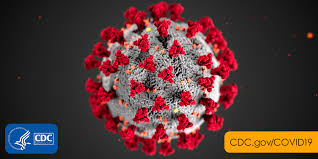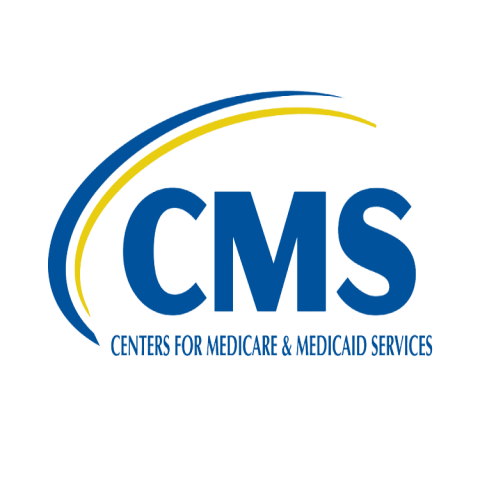|

COVID-19
Congress and the administration are responding to the COVID-19 crisis in a variety of ways. It is important in the fast-moving decision process that the various relief and safety efforts meet the needs of people with disabilities. The latest Congressional COVID-19 response includes people with disabilities. Your education to members of Congress about the impact on people with disabilities is important during this time.
Congressional Efforts:
|
Bill
|
Status
|
What it means for People with Disabilities
|
|
Coronavirus Preparedness and Response Supplemental Appropriations Act
|
Became Law on
March 6, 2020
|
The bill requires that agencies "pay back" money that was moved from programs like NIDILRR and emergency heat funding when the crisis began.
|
|
Families First Coronavirus
Response Act
|
Became law on March 19, 2020
|
Free coronavirus testing for everyone who needs a test, including the uninsured. Increased paid leave. Enhanced Unemployment Insurance to people unable to work. Increased funding for food security programs.
|
|
Coronavirus Aid, Relief, and Economic Security Act (or CARES Act)
|
Became law on March 27, 2020
|
- Allows state Medicaid programs to pay for direct support professionals to assist disabled individuals in the hospital
- $13.5 billion available for formula grants to States, which will then distribute 90 percent of funds to local educational agencies to meet needs of all students, including students with disabilities
- $85 million for Centers for Independent Living
- $50 million for Aging and Disability Resource Centers
- Extension of Money Follows the Person and Spousal Impoverishment through November 30, 2020
- Waives nutrition requirements for Older Americans Act (OAA) meal programs during the public health emergency related to COVID-19 to ensure seniors can get meals in case certain food options are not available
|
|
Paycheck Protection Program and Heath Care Enhancement Act
|
Became law on April 24, 2020
|
- $321 billion to refill the CARES Act's Paycheck Protection Program (PPP)
- $60 billion in economic disaster loans for small businesses
- $75 billion to help hospitals treat COVID-19 patients and address drops in revenue
- $25 billion for states to increase testing capabilities
|
|
Health and Economic Recovery Omnibus Emergency Solutions Act (HEROES Act)
|
Passed the House on May 15, 2020
|
- Home and Community Based Services investment to support wages, services, leave, and related critical needs to support access to home and community- based services.
- $10,000,000 for Developmental Disabilities Act Programs
- $10 Billion additional for nutrition services and increased flexibility to support greater access for people with disabilities
- Requirement for CDC Field Study Pertaining to Health Inequities
- Specifically: "the impact of disability status on health care access and disease outcomes"
|
What happened last week:
- The House passed the HEROES Act along party lines on Friday, May 15th. This can be seen as a starting point for negotiations with the White House and the Senate.
- Senate leadership has not yet expressed an interest in "taking up" or considering the legislation. It may be the case that they do not consider this bill as part of their Package 4. Senate action may come in June or later.
Plain Language:
- Congress is working on bills to support people during COVID-19. They need to hear from you about the needs of people with disabilities.
What this means to you:
- More than 105 million Americans - or about 4 in 10 adults - are at greater risk if infected with the coronavirus (COVID-19), including older adults, people with disabilities and those with underlying health conditions. The front-line workers and family caregivers who support these individuals also face increased risks, requiring additional resources and supports to protect their health and well-being.
Action steps:
-
Read AUCD's resources to continue your work during the pandemic
-
-
-
-
You can use this easy tool to find your members of Congress

Administrative Action
The Executive branch is using its powers to respond to the growing impacts on people and the economy during COVID-19. Many of these policy changes do not require Congressional approval.
 Congressional Action Congressional Action
The House of Representatives passed a resolution on May 15, 2020, largely along party lines, 217-189, to allow proxy voting, remote committee hearings and markups, with three Democrats - Reps. Rick Larsen (Wash.), Elaine Luria (Va.) and Tom O'Halleran (Ariz.) - joining Republicans to vote no.
Plain Language:
- Members of the House of Representative will be able to do their work from home during the rest of the pandemic.
What this means to you:
- You will be able to continue to see the work of the House via the broadcast of online hearing and the public documentation of voting.
- Under the proxy voting system, lawmakers will have to send a letter to the House clerk designating a proxy and providing exact instructions for each floor vote. A list of designated proxies would be publicly posted on the House clerk's website.
  Centers for Medicare and Medicaid Services Centers for Medicare and Medicaid Services
The Centers for Medicare and Medicaid Services (CMS) put out a Notice of Public Rule Making (NPRM) for its Preadmission Screening and Resident Review (PASRR) regulations, with comments due on May 20th. The PASRR is a federal rule to help keep people with disabilities from being placed in Medicaid-funded nursing facilities and to help nursing facility residents transition back to the community.
Plain Language:
- The government is asking for public comments on a rule about nursing homes.
What this means to you:
- PASRR has helped states comply with the Supreme Court's Olmstead decision. The proposed changes would make it easier to admit into a nursing home someone who could instead be served in the community and make it harder to discharge someone from a nursing home to the community.
Action Steps:
Hospital Visitor Policy
Complaints have been filed with the Office for Civil Rights at the U.S. Department of Health and Human Services raising issues about how visitor policies due to COVID-19 have denied access to communication and support needed by many elderly and disabled people to make informed medical decisions, sometimes resulting in incorrect care or long-lasting harm.
Around the country, hospital policies vary. Many ban all visitors; some states and some hospitals do make exceptions for some patients who can't speak. The Center for Public Representation, Autistic Self Advocacy Network, CommunicationFIRST, and The Arc have released Evaluation Framework for Hospital Visitor Policies. This guidance provides stakeholders with the legal framework for required reasonable modifications to state and hospital no-visitor policies, identifies a number of criteria for evaluating visitor policies, and provides examples from state policies.
Plain Language:
- If you are experiencing discrimination in hospital care, know that there is guidance and help to advocate.
What this means to you:
- Stakeholders can use this in working with states, local communities and medical professionals in developing fair and non-discriminatory plans.
Action steps:
 Affordable Care Act Affordable Care Act
Last week, all 47 Senate Democrats filed an amicus brief in a lawsuit to overturn the Affordable Care Act (ACA), which is currently pending before the Supreme Court and threatens to strip health care coverage and protections for preexisting conditions from hundreds of millions of Americans.
Plain Language:
- Senate Democrats sent an amicus brief about the ACA lawsuit. Amicus briefs are legal documents filed in court cases by members of the community. The briefs share with the court additional information or arguments that the court may want to think about before making a decision.
What this means to you:
- The threat of this lawsuit is that many Americans would be forced to pay higher costs for worse care. Millions of Americans could lose their health insurance. Out of pocket expenses and drug costs would increase, especially for seniors and people with disabilities.
Action Steps:
- Read AUCD's amicus brief sent with other disability organizations about this lawsuit.
 Congressional Updates Congressional Updates
Republican Mike Garcia won the 25th Congressional District special election last week. This seat was vacated by former Rep. Katie Hill (D-Calif.), who resigned last year. He will complete the 116th Congressional term and plans to run for reelection to a full term in November.
AUCD Policy Talk
"If you have a family member, friend or colleague who lives in a nursing home or other congregate care setting, you likely are concerned about recent reports of large percentages of COVID 19 related deaths occurring in these facilities. We're concerned, too." This week on #AUCDPolicyTalk hear from co-authors Phil Weintraub and Amy Hewitt about the needs of #PWD during the pandemic and beyond for community living.
Action Steps:
 Love Policy? We do too! Love Policy? We do too!
Check out AUCD's new policy resource, a one-page fact sheet to help explain AUCD's policy efforts, and engage with us today!
|
